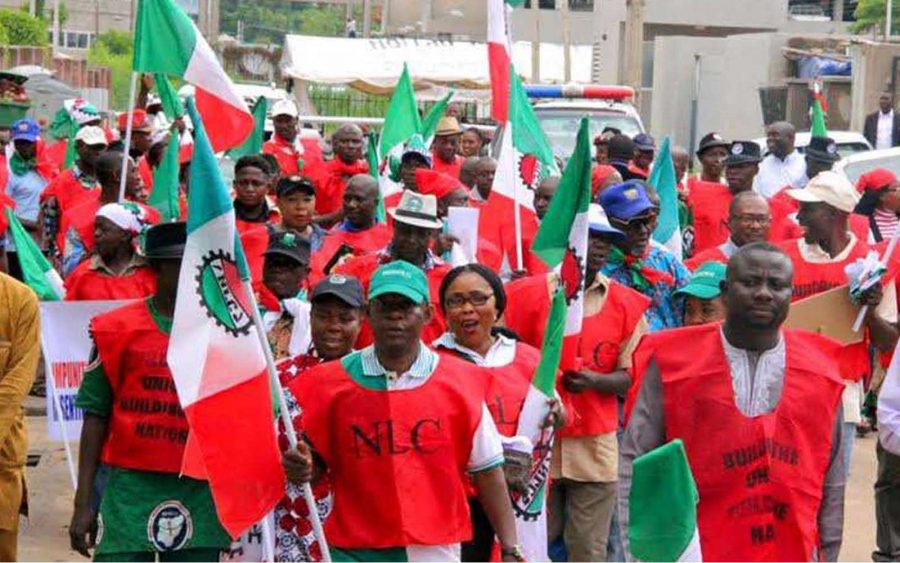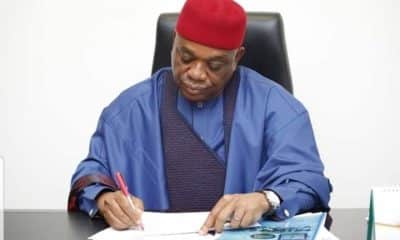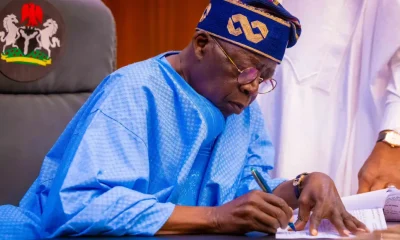Business
Federal Government To Spend Highly On Salaries, Pensions

The Federal Government of Nigeria plans to allocate 29.18% of its total budget for 2024 to 2026 to salaries, overheads, and pensions, amounting to N24.66 trillion of the N84.50 trillion planned expenditure.
Anticipated salary increases are expected to push personnel costs up by 8.51% to N7.99 trillion in 2024, then to N8.18 trillion in 2025, and N8.49 trillion in 2026.
This increase contrasts with the N23.37 trillion allocated for capital expenditure during the same period.
This budget distribution continues the trend of prioritizing overhead costs, leading to substantial fiscal deficits.
As of September 2023, 29.76% (N3.78 trillion) of the government’s total spending (N12.7 trillion) was on salaries, significantly higher than the N1.47 trillion spent on capital projects.
The government said, “The actual spending was N12.7tn. Of this amount, N5.79tn was for debt service, and N3.78tn for personnel costs, including pensions.
“Only about N1.47tn (25 per cent of the pro-rata budget) has been released for MDAs’ capital expenditure as of September 2023.”
The Federal Government has about N1.5 million workers and it will review minimum wage by 2024.
There are concerns that the government is operating a bloated civil service with many agencies with overlapping functions. This has led to calls for agency mergers and scrapping, where they might apply.
With salaries weighing heavily on its spending, the government, in its 2024 – 2026 fiscal framework, said, “The budget deficit is projected to be N9.18tn in 2024, i.e., N4.6tn down from N11.60tn budgeted in 2023.
“The proposed deficit represents about 50 per cent of the total Federal Government’s revenues and 3.88 per cent of the estimated GDP (Gross Domestic Product ). The high projected level of fiscal deficit in 2024 is partly attributable to the proposed salary review of Federal workers across the board, increased pension obligations, and higher debt service costs.
“At 3.88 per cent, the projected level of deficit is higher than the three per cent threshold stipulated in the Fiscal Responsibility Act (FRA), 2007, but significantly lower than the 2023 level of 6.11 per cent; FRA 2007, however, allows the government to exceed the 3 per cent threshold if justified by threats to national security.”
The fiscal deficit for the three years under review is expected to total N30.89tn. In June 2023, the World Bank disclosed that the Federal Government’s spending on personnel costs and debt servicing exceeded total revenues in 2022.
According to the Washington-based bank, this was the first time the Federal Government’s personnel costs and debt servicing surpassed its total revenue. It noted that the government is spending a lot on these costs, leaving little room for capital expenditure.
It declared, “Overall, the rigidity of expenditure has increased, squeezing fiscal space for the discretionary spending needed to meet development objectives.
“Personnel costs and interest payments comprise a growing share of total general government expenditures (59 per cent in 2022) and for the first time in 2022 exceeded total government revenues (102 per cent).”
Rising personnel cost is leaving little room for investments in infrastructure and in his budget presentation speech, President Bola Tinubu disclosed that the government would leverage the private sector to plug its capital expenditure spending holes.
He said, “In view of the limited resources available through the federal budget, we are also exploring Public Private Partnership arrangements to finance critical infrastructure.
“We, therefore, invite the private sector to partner with us to ensure that our fiscal, trade, and monetary policies, as well as our developmental programmes and projects, succeed in unlocking the latent potential of our people and other natural endowments, in line with our national aspirations.”
Recently, the Minister of Budget and National Economic Planning, Abubakar Bagudu, declared that the government was only managing to pay salaries considering its dwindling revenue sources.
The minister represented by the Director (International Cooperation), Dr Sampson Ebimaro at an event said, “Government faces enormous challenge especially now, the government is facing revenue deficit.
“There’s no money anywhere in the country, the government is just managing to pay salaries.
“The growth rate is very slow, and the population growth is fast pacing and increasing. unemployment is surging amid high inflation. These are issues which non-governmental organisations must take on board in helping the government to cover the space government could not cover.”










